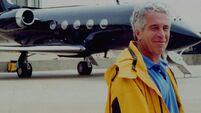Birds suspected in spreading flu 'cleared before export'
The Taiwanese birds said to have infected a parrot in Britain with bird flu were inspected for flu before leaving the island and received a clean bill of health, a Taiwanese official said today.
Taiwan also announced it waned people arriving on the island from China to test their own health for 10 days, after birds smuggled from the mainland tested positive for bird flu virus.














